In 2016, when Melinda Bean was 36, cancer was the last thing on her mind. Active and health-conscious, she had routinely received a clean bill of health from her doctors.
But when she noticed a lump in her breast in February of that year, it unsettled her enough that she reached out to her twin sister, Michelle P. Bean, PhD, MSHA, a health information management director at a New Mexico hospital. “I was lying in bed, and I happened to feel my chest. I don’t know what made me do that,” Melinda recalls. “I felt a lump, and I’m like, OK, this was not here before. And that’s when I called my sister.”
They talked each other through it, not thinking anything could be seriously wrong.
Though she was sure it was just a cyst, Melinda consulted with her doctor, who scheduled a mammogram. She remained hopeful that the results would reveal a benign mass.
When her doctor uttered the word “cancer” after the exam, it hit Melinda hard. A subsequent biopsy revealed that she had developed stage 2B invasive ductal carcinoma, an aggressive form of breast cancer that had spread into her lymph nodes. Within days, the Bean sisters’ lives had been turned upside down — and, unfortunately, that was just the beginning.
Early Stages
When Michelle heard the news about her sister, she rushed to Melinda’s Virginia home to help her through the process.
The aggressive treatment program — 16 rounds of chemotherapy; radiation; and eventually a nipple-sparing double mastectomy — left Melinda wondering about the possibility of having children. Thankfully, the timing of her diagnosis and treatment allowed her to retrieve and preserve nine healthy eggs before starting chemo.
Michelle stayed with Melinda for a few weeks, taking notes during her appointments and providing her sister with support, comfort, and care.
“My body went through a change,” Melinda recalls. “My appetite wasn’t the same. My nails turned black. My tongue was black. My hair . . . Yeah, it takes a toll on your body.”
It took a toll on Michelle as well. “Being there with my sister and seeing her start the chemo — there are no words to describe what it’s like to see your loved one and what they look like normal, healthy, and then to see what chemo does to the body.”
Before Michelle returned home, her mom implored her to schedule a checkup, too — just to be safe. Her doctors were hesitant, given her age and personal health history, but Michelle insisted.
Just six weeks after Melinda had received her diagnosis, Michelle’s mammogram revealed ductal carcinoma in situ, an earlier stage of breast cancer.
Tough Choices
Because Michelle’s cancer was detected at an earlier stage, her treatment would be more accelerated than her sister’s. She would undergo surgery to remove the cancer in her breast, and then have radiation, but she wouldn’t need chemotherapy.
It was at this point that genetic testing revealed that Melinda had the BRCA1 gene mutation — which significantly increases a person’s risk of developing breast and ovarian cancer — but Michelle did not.
For Melinda, this meant her treatment would likely include a hysterectomy in addition to the double mastectomy, to reduce the risk of the cancer spreading. For Michelle, the lack of the mutation meant her treatment might not entail such extensive surgical procedures.
She assumed she’d have a lumpectomy to remove the cancer, and a breast-reconstruction procedure later on. “I’m like, OK, very good, I still will have my breasts so I can breastfeed my future babies.”
But when further testing led her doctor to recommend a more aggressive approach, Michelle began the process of learning to accept more significant losses. What had started as a lumpectomy became a mastectomy with the possibility of saving her nipple — which, at the time, felt like her line in the sand.
That is, until Michelle happened to overhear a devastating phone conversation at her physician’s office. “I remember signing in one day, and I heard the receptionist say, ‘You found a lump in the other breast?’” she recalls. “I was attuned to that conversation, and I heard it very clear. I said, ‘I don’t want to be that patient calling, saying that I found something in my other breast. I don’t want that to be me.’”
Michelle walked into her appointment with her mind made up. She told the doctor she wanted a double mastectomy, and as soon as the words came out of her mouth, she knew she’d made the right choice. “I said, ‘Take both breasts. I’m young, I don’t want to have to deal with this. I am worried about saving a breast to breastfeed a baby that’s not even here — take both of my breasts.’ And she told me, ‘Dr. Bean, that’s the best decision that you could have made.’”
Strength in Shared Experience
As each sister waged her own war against cancer, the twins found solace in each other and their shared experience. Though they’d always been close, they began developing an even stronger virtual support system, through which they shared information, tips, and emotions.
And because Michelle’s treatment was accelerated, she provided Melinda valuable insight into the next stages of her journey.
“[Michelle] went through radiation first, while I was still going through chemo,” Melinda explains. “She gave me tips on what to expect, because I didn’t know. She had the radiation, her body had to heal, then she had the double mastectomy. Those tips helped me out a lot.”
And through it all, they helped each other remain optimistic.
“We both thrived, and continue to do so, on positivity,” Michelle says. “We never said, ‘Why us, why me?’ Melinda didn’t have that attitude; neither did I. We were on that same page that we would get through this, be positive about it, be each other’s support system, and surround ourselves with love and positivity.”
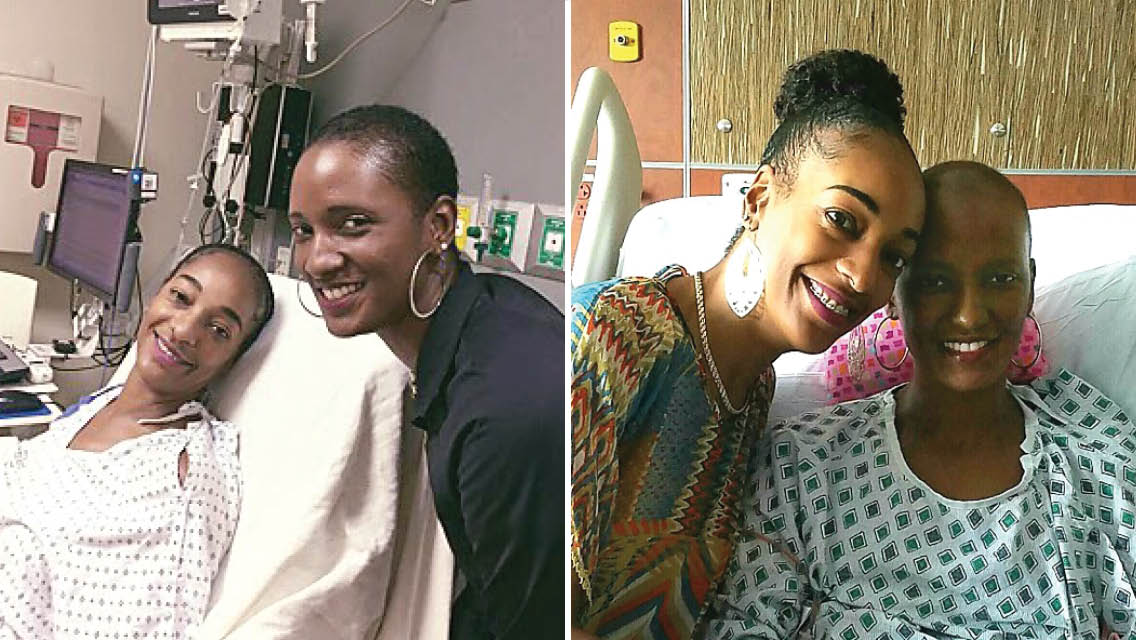
Turning Outward — and Looking Forward
After experiencing the benefits of a strong virtual network, Michelle conceived a vision for supporting women with breast cancer, inspired by the system she and her sister had developed for each other. She called her vision PINK “ME,” which stands for Providing Information, Networking, Knowledge . . . “My Experience.”
Michelle didn’t act on her vision immediately, but as more of her family members and friends received breast-cancer diagnoses, she felt compelled to move forward. PINK “ME” officially launched last year on Labor Day — “because this has been a labor of love,” Michelle notes.
The organization offers emotional and financial support to women during each stage of their breast-cancer journeys. “With PINK ‘ME,’ the goal is to have the funding to be able to support more women and families from the point of diagnosis to the point of being the breast-cancer survivor,” Michelle says.
“We know some women don’t have the support they need, and we want PINK ‘ME’ to give them that support and that help,” adds Melinda, who serves on the organization’s board of directors. “We want to eliminate those things that cause stress so that you can get back to healthy again.”
In addition to her role as a PINK “ME” board member, Melinda has returned to work as an information technology specialist and enjoys a regular exercise routine. She maintains a healthy diet, prioritizing fresh, whole foods and largely avoiding processed fare. At the moment, she’s grateful to be in remission, and hopeful that children will be part of her future.
Michelle remains committed to her health and wellness, too — she stretches and does resistance-band exercises every morning before work and makes sure to get a good night’s sleep. She’s also acutely aware of how vital it is to be diligent with follow-up care: In early 2021, after nearly five years as a breast-cancer survivor, she had an MRI that revealed another tumor. Michelle has since had a lumpectomy to remove the tumor and undergone testing to determine the best treatment plan.
Rather than see this as a setback, Michelle understands that this is the next phase in her breast-cancer journey. “I cannot overstate the importance of health and wellness, the ongoing impact of side effects, and the support that is needed for those diagnosed with breast cancer,” she adds.
Eventually, Michelle also hopes to someday have children. In the meantime, however, she’s focused on her recovery and her role as founder and president of PINK “ME.” “I feel I’m in a great place, both physically and mentally. It’s very rewarding to be able to use my story to help others, not only through words but through action.”
Melinda and Michelle’s Top 3 Success Strategies
- Celebrate small wins. Chemotherapy takes a toll on the body, and there were days when Melinda struggled to perform everyday tasks. But instead of becoming frustrated by what she couldn’t do, she and her family celebrated all the little things she could accomplish.
- Never give up. “I know it’s hard,” Melinda admits. “I’ve been through it — sometimes you’ll be at your lowest point, and sometimes you’re like, OK, why am I going through this? But know you have different people out there who care, you have different people out there who love you. So, I would say: Never give up.”
- Be your own advocate. “Don’t be afraid to ask questions if you’re not clear on your health and treatment plan,” Michelle advises. “It’s your body, and you should be able to ask those questions if you’re not clear on what’s being shared with you as the patient.”
Tell Us Your Story! Have a transformational healthy-living tale of your own? Share it with us!
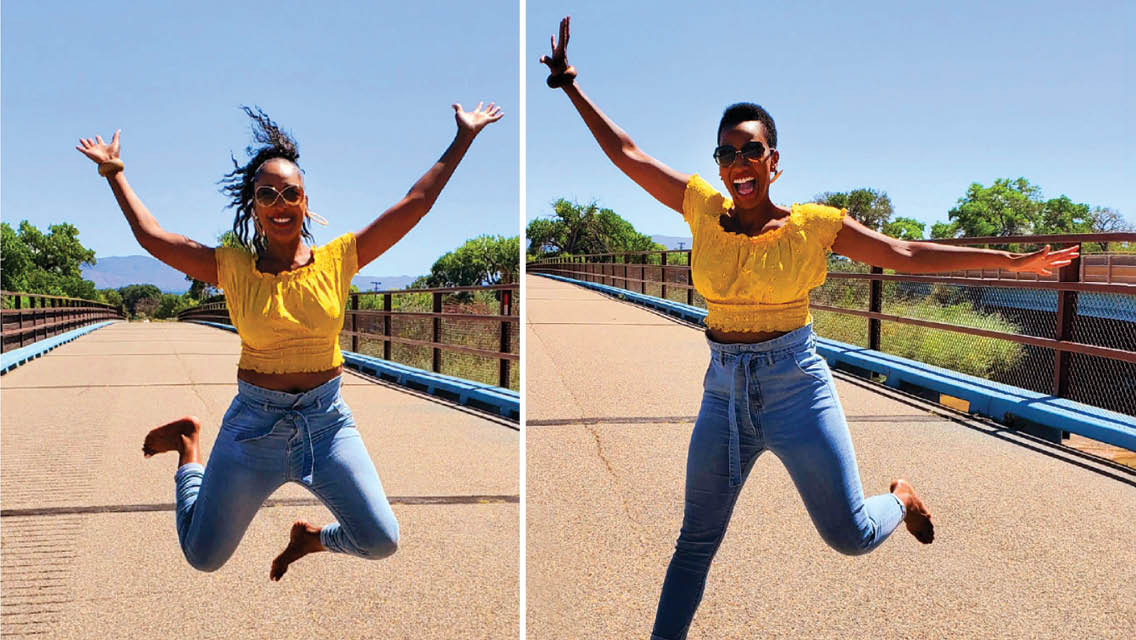
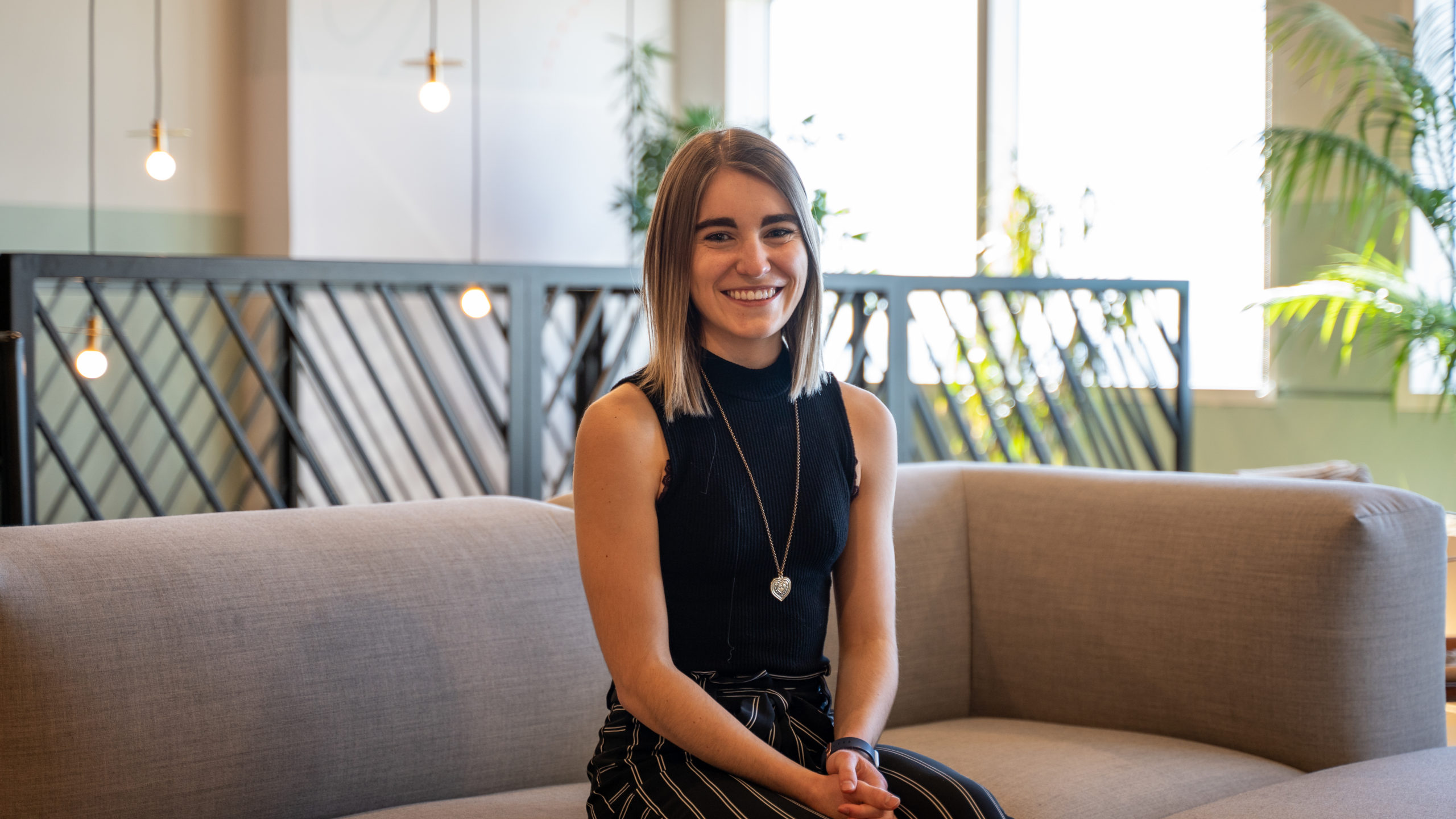
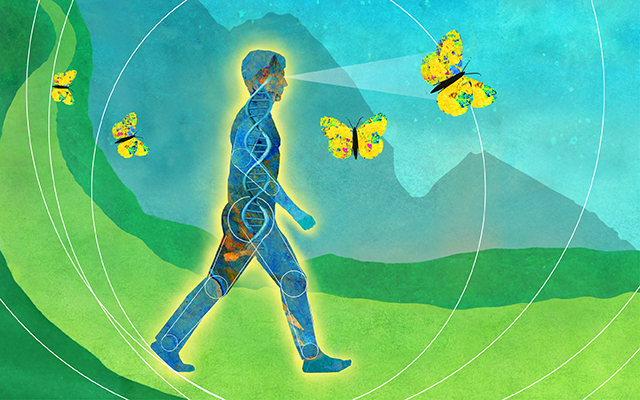

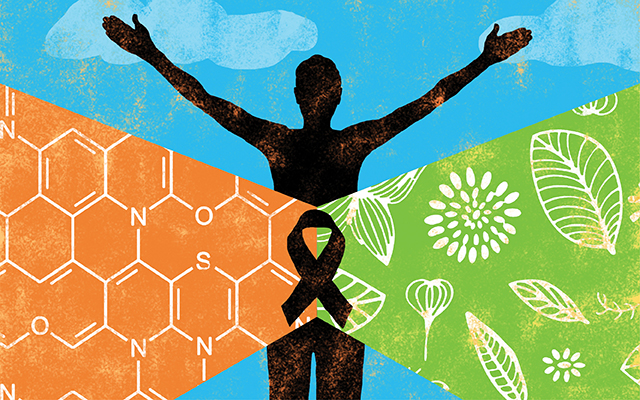
This Post Has 0 Comments